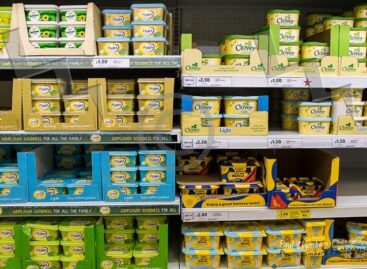Magazine: Nielsen workshop on category management: this is how financial results are improving
In June Paris Galanis, the regional category management consultant of Nielsen Europe held a two-day workshop on category management in Budapest. Sixteen people from twelve companies participated in the course. Mr Galanis spoke about consumers’ aspects, revealing that they associate higher value with the assortment of a category if it exactly meets their requirements. With conscious category management retailers are able to raise their store’s image and increase consumer loyalty. They also get to involve new consumers and better their financial results. To achieve these results, consumers have to be segmented according to simple (e.g. who they are) and complex (e.g. how do they act as consumers, what influences them, etc.) characteristics. If we examine the shopper, it is important to know whether they are the end users or just the purchasers of the product, e.g. a parent who buys baby food for their children. Individual shopping decisions are influenced by different factors: when buying coffee one is influenced by aroma, price and promotions, while those who buy baby food rely more on the doctor’s advice or special characteristics such as vitamin content. Different categories play different roles in store sales. From the assortment of a store 5-7 percent of categories are called the ‘target’ categories, e.g. bread, meat and dairy products. ‘Basic’ or ‘routine’ categories, e.g. soft drinks, rice, beer make up 55-60 percent of categories. ‘Occasional’ or ‘seasonal’ categories, e.g. ice cream on a stick constitute 15-20 percent and ‘convenience’ categories such as chocolate also represent 15-20 percent. The Hungarian FMCG market reached a level of development where category management is a regularly used marketing tool. With changing shopping habits the market positions of categories also change. Nielsen’s expert pointed out that the aspects of pricing may differ greatly across the different categories. Participants also learned that manufacturer and retailer cooperation in category management can result in increased turnover in a category.
Related news
Related news
Plant-based brands risk losing consumer interest, says Flora exec
Flora Food Group marketing director Ian Hepburn has warned that…
Read more >Albertsons Terminates Merger With Kroger
Albertsons has terminated its $25-billion (€23.7 billion) merger agreement with Kroger after…
Read more >Zalando acquires rival About You
Zalando is buying out its German competitor About You. Both…
Read more >




